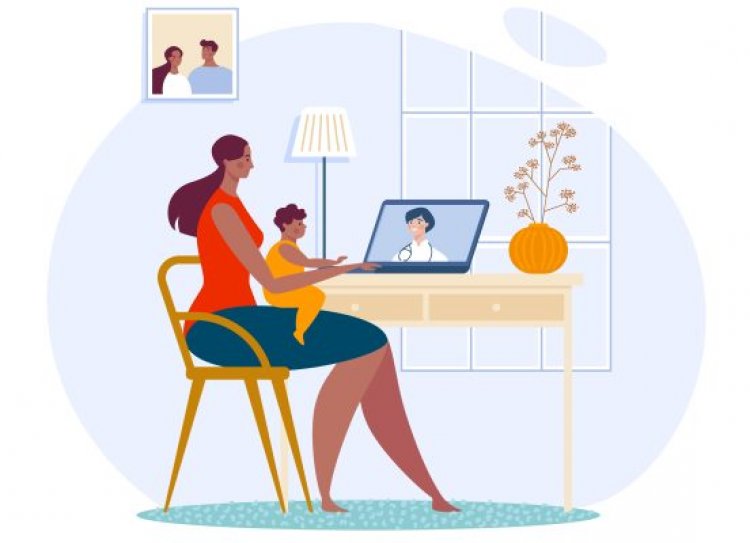HelloHero raises $7.7M seed round for an online ‘healthcare system’ for kids’ therapy
In a field that ranges from text therapy and AI chat bots, to guided meditation, some mental health startups are pursuing a different niche: therapy for kids. And kids only. HelloHero, a company focused on teletherapy for kids up to 21 years old (the average user is 10 years old), announced a $7.7 million dollar […]

In a field that ranges from text therapy and AI chat bots, to guided meditation, some mental health startups are pursuing a different niche: therapy for kids. And kids only.
HelloHero, a company focused on teletherapy for kids up to 21 years old (the average user is 10 years old), announced a $7.7 million dollar seed round on Wednesday, with a $4.5 million line of credit from Silicon Valley Bank. This round of funding follows a rebrand for the company, and plans to dive deep into data-driven teletherapy.
HelloHero is the brainchild of founder Syed Mohammed, who struggled with dyslexia as a child, but wasn’t diagnosed until adulthood. After benefitting from therapy as an adult, he has focused on building out a teletherapy program offered through schools or directly to families. That platform was initially called Enable My Child (founded in 2018). But the company has recently rebranded to HelloHero.
So far, HelloHero has provided teletherapy for 3,800 children, about 1,800 of whom have been served this school year.
HelloHero isn’t the only player in the teletherapy for kids space (DotCom Therapy, a company founded 2015 to provide therapy through school districts, closed a $13 million round this year as well). Although HelloHero does hit some similar notes seen in other teletherapy companies (largely, leveraging clinical expertise to get therapists into schools that may not have them), its approach is very technology-focused. Mohammed has spent a lot of time thinking about using technology to improve therapy itself, and building tools to connect schools, insurance companies and parents.
“What we’ve built here is the healthcare system that is connected to payers; that is connected to their families and children; that is connected to therapists,” Mohammed told TechCrunch.
Any child who uses HelloHero begins with a treatment plan established by a therapist. After every session of therapy delivered using HelloHero, therapists and parents are asked to evaluate the clinical progress a child is making. All of that data is collected by HelloHero’s platform, which, as Mohammed explains, is used to tweak the plan from week to week.
“We have generationally improved how progress is tracked,” argues Mohammed.
That’s not the only benefit of collecting information this way. Session-level data that links therapy to clinical progress (or lack thereof) has already proved to be a powerful asset for companies.
On a vastly larger scale, ieso, a U.K.-based text-therapy company which closed a $53 million Series B round in November, has also asked participants to evaluate their progress over the course of treatment. The result is a massive data set linking certain therapeutic techniques to clinical outcomes (which has resulted in published research). That data set has become a major attraction point for investors.
HelloHero appears to be building an outcomes-linked data set of its own, and has aims to using it to provide more automated therapeutic tools.
Mohammed plans to develop a data-informed tool to guide therapists through their own sessions. It would provide advice in real time on a therapists’ screen while in-session, based on what has worked (and not worked) before.
In HelloHero’s current platform, advice is already provided before or after sessions are completed, says Mohammed. But the company plans to bring real-time “on-screen intelligence” to life within the next year.
Aside from on-screen intelligence, HelloHero has looked to set its platform apart on the back end. HelloHero has built its own electronic medical record system, and a payer platform that’s “connected” to private insurers and Medicaid.
“I asked our chief technology officer, ‘how much code do we really have?’, and he explained it: think about us like a regional bank. That’s how big our technology is,” Mohammed said.
As far as the therapy itself goes, HelloHero has two arms of the business: the first is based on direct collaborations with schools. The company is in contract with 500 school districts, and more than 100 are actively providing therapy.
The second arm is a direct to family program, which offers specialized courses for kids and parents (programs include screen time management, or feeding difficulties, as examples). Now, the direct to family programs constitute about 8-10% of the business, says Mohammed. Going forward the company plans to invest more in this aspect of the company.
As for this round, the company also plans to focus on recruiting expertise in three areas: insurance integration, child psychology and technology.







